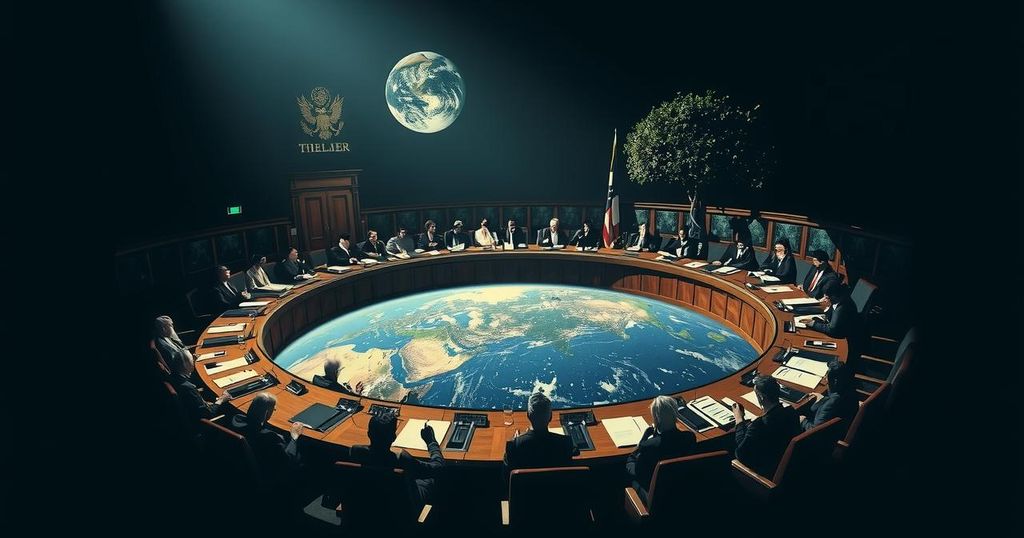Climate change
AF, AFP, ASIA, AZERBAIJAN, CLIMATE CHANGE, EUROPE, EUROPEAN UNION, HAGUE, HUMAN RIGHTS, ICJ, INTERNATIONAL COURT OF JUSTICE, NETHERLANDS, OCEANIA, PACIFIC ISLAND, PACIFIC ISLAND STUDENTS FIGHTING CLIMATE CHANGE, PARIS AGREEMENT, PEACE PALACE, RALPH REGENVANU, REGENVANU, SCENIC PEACE PALACE, SI, SIOSIUA VEIKUNE, STUDENTS FIGHTING, THE HAGUE, TONGA, UN, UN GENERAL ASSEMBLY, UNITED NATIONS, VANUATU, VANUATU THE HAGUE
Jamal Walker
0 Comments
Vanuatu Highlights Climate Crisis at ICJ Hearings: A Call for Legal Action
The ICJ hearings, led by Vanuatu, are crucial for establishing international legal frameworks for climate change action. Over 100 countries and organizations are participating, marking a historic moment that could shape climate law and policies. Advocates hope for a strong advisory opinion while some worry it may have limited effects. The hearings come amidst record CO2 emissions and recent climate finance pledges deemed inadequate.
The future of our planet is a significant concern during the ongoing hearings at the International Court of Justice (ICJ) in The Hague, as stated by a representative of Vanuatu on Monday. This landmark case seeks to establish essential legal principles regarding how nations should address climate change. Over the next two weeks, more than 100 countries and organizations will present their arguments, marking the largest participation in ICJ proceedings to date.
Ralph Regenvanu, Vanuatu’s climate change representative, highlighted the profound implications of this case, asserting, “The outcome of these proceedings will reverberate across generations, determining the fate of nations like mine and the future of our planet.” This case is being regarded as potentially pivotal for humanity’s future, as advocates hope the ICJ provides a comprehensive advisory opinion with significant legal impacts, which would influence both national and international climate legislation. However, some observers express concern regarding the advisory nature of the opinion and the possible time delay in its delivery.
The ICJ’s hearings coincide with challenges faced in recent global climate negotiations, particularly following the COP29 summit, where wealthier nations pledged substantial financial assistance to developing countries. This funding, while welcomed, has been criticized as insufficient to meet urgent climate disaster preparedness needs. Activists gathered outside the Peace Palace, urging immediate climate action and justice, reflecting the sentiments of the Pacific Island students involved in climate advocacy.
The UN General Assembly last year directed the ICJ to address two critical questions about the international legal obligations of states to protect the climate and the repercussions of failing to do so. This inquiry directly concerns vulnerable nations affected by climate change impacts such as rising sea levels and extreme weather events. With record CO2 emissions reported, particularly as the burning of fossil fuels continues unabated, the stakes of the ICJ’s findings are heightened.
Although expectations for specific answers from the court are modest, experts believe a legal framework could be established to guide future climate litigation efforts. The court’s anticipated ruling will contribute to shaping domestic and international laws aimed at combating climate change. Additionally, it is crucial for major polluting nations to collaborate meaningfully towards the global climate goals set during the Paris Agreement, especially as young activists passionately advocate for their future – a future threatened by current inaction.
The hearings at the International Court of Justice represent a crucial development in the international response to climate change. Vanuatu has taken the lead in urging for a legal framework that binds nations to protect their climate and respond to the consequences of their emissions. The unprecedented participation of over 100 countries signals a growing urgency to address climate issues legally and to hold states accountable for their environmental impacts. The outcome of these proceedings could influence climate policy and collaborative international action significantly.
In summary, the ICJ hearings initiated by Vanuatu underscore the critical need for a unified legal approach to combat climate change. As representatives from around the world gather to present their cases, the significance of these proceedings cannot be overstated. The anticipated advisory opinion from the court may lay the groundwork for future climate legislation and accountability, representing a profound moment in the global climate justice movement. Without immediate and effective actions, vulnerable nations and future generations face dire consequences.
Original Source: www.france24.com




Post Comment